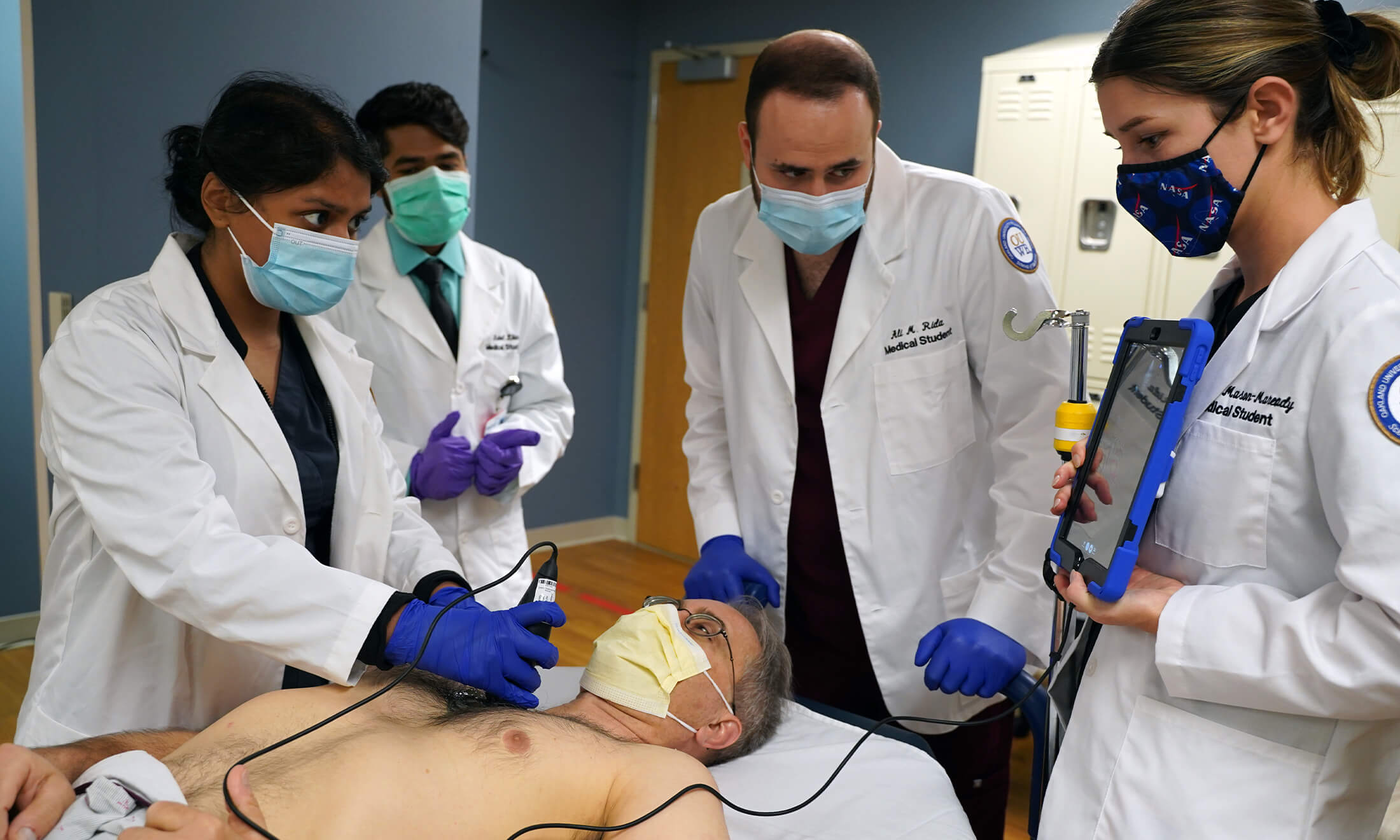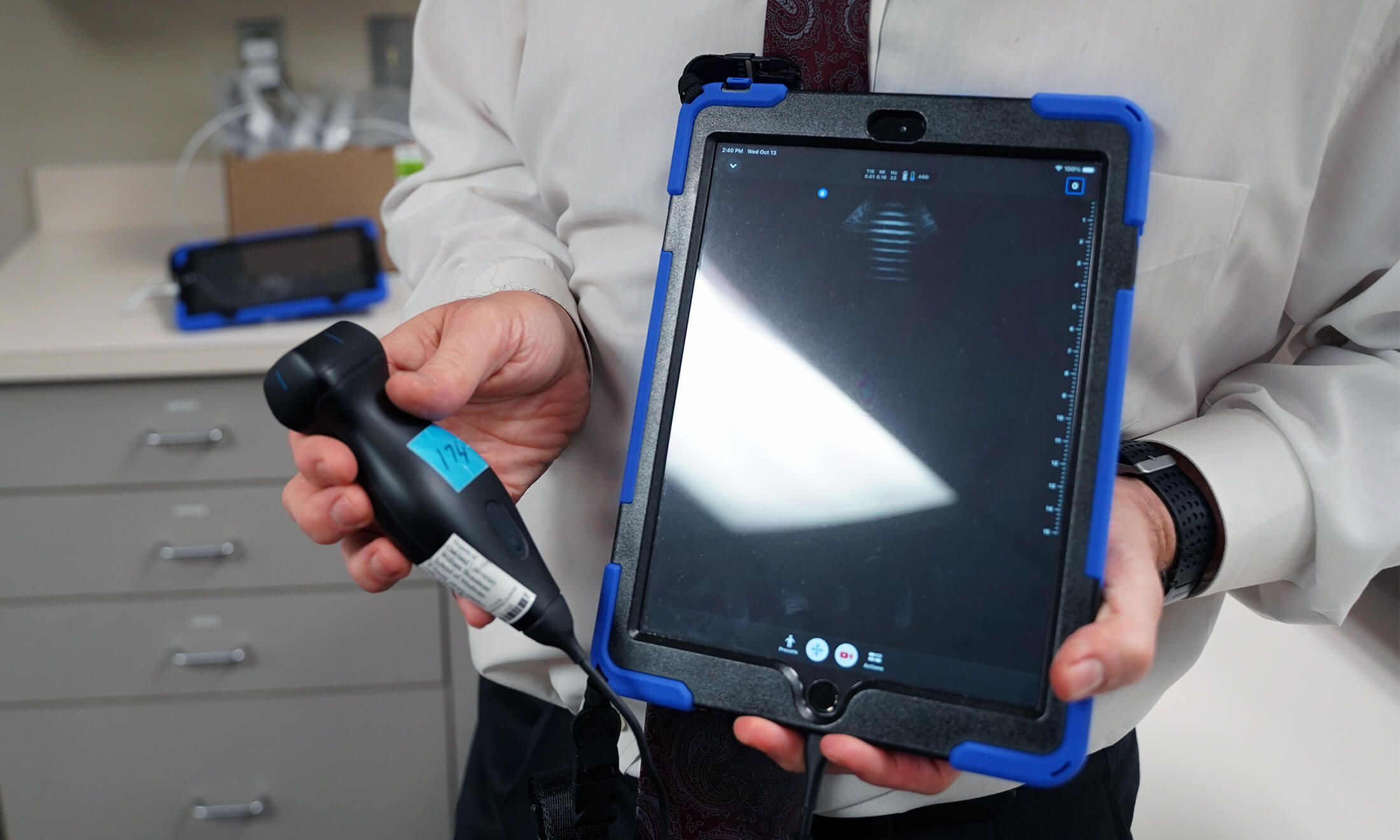‘Ubiquitous…as a stethoscope’
OUWB Clinical Skills Center adds 15 handheld ultrasounds for training
With the increased use of portable ultrasounds in clinical settings, OUWB medical students can now train with some of the newest handheld devices at the school’s Clinical Skills Training & Simulation Center.
The center, located on the campus of Beaumont Hospital, Troy, recently added 15 of the devices to its training resources available for OUWB students.
The devices are called point-of-care ultrasound (POCUS).
The Butterfly brand portable ultrasounds look similar to an electric hair shaver and connect to either a smartphone or table (Android or iOS). In the CSC, each handheld unit is paired with a tablet, which puts the cost per set at about $2,400.
They can be especially useful in acute situations where patients might present with heart issues, shortness of breath, or musculoskeletal abnormalities. That makes point-of-care ultrasound especially valuable in urgent care centers, emergency rooms and in making critical decisions in hospitalized patients.
Still, Maurice Kavanagh says the machines aren’t designed to replace more expensive ultrasound machines.
“It’s just a quick point-and-shoot device to give someone who’s familiar with bedside ultrasound diagnosis a quick look to get an idea of what’s going on (with the patient),” he says. “Gradually, it will be as ubiquitous of a diagnostic tool as a stethoscope.”
Arati Kelekar, M.D., an internist at Beaumont Health and OUWB faculty member, helped train OUWB students on the devices last fall. She agreed that “these and other similar devices are increasingly popular amongst practicing physicians.”
Kelekar says the primary benefits of POCUS include the ability to answer several questions at the bedside using technology that is radiation free and often provides information that cannot be obtained through a physical exam.
“This enhances clinical decision making at the bedside,” she says. “OUWB students should be able to develop POCUS skills prior to their interaction with actual patients, hence access to these devices in the preclinical setting is helpful.”

 March 22, 2022
March 22, 2022
 By Andrew Dietderich
By Andrew Dietderich










